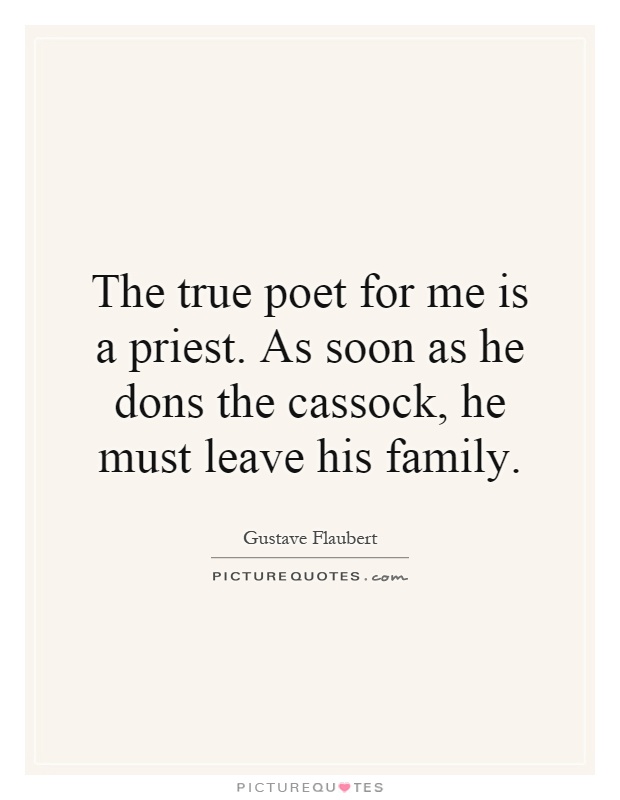The true poet for me is a priest. As soon as he dons the cassock, he must leave his family

The true poet for me is a priest. As soon as he dons the cassock, he must leave his family
Gustave Flaubert, the renowned French novelist, is often quoted as saying, “The true poet for me is a priest. As soon as he dons the cassock, he must leave his family.” This statement reflects Flaubert’s belief in the sacrificial nature of the poet’s calling, drawing parallels between the poet and the priest in terms of their dedication to their craft.Flaubert’s comparison of the poet to a priest suggests that both roles require a certain level of devotion and commitment that transcends personal relationships. Just as a priest is expected to prioritize his spiritual duties over his familial obligations, the poet must also be willing to make sacrifices in order to fully immerse himself in his art. This idea of detachment from family ties is not meant to imply a lack of love or care for one’s relatives, but rather a recognition of the all-consuming nature of the creative process.
For Flaubert, the act of donning the cassock symbolizes a transformation, a shedding of one’s worldly concerns in order to assume a higher calling. The poet, like the priest, must be willing to set aside personal desires and attachments in order to serve a greater purpose. This idea of selflessness and sacrifice is central to Flaubert’s conception of the poet as a figure of spiritual significance, someone who is able to channel divine inspiration through their work.












 Friendship Quotes
Friendship Quotes Love Quotes
Love Quotes Life Quotes
Life Quotes Funny Quotes
Funny Quotes Motivational Quotes
Motivational Quotes Inspirational Quotes
Inspirational Quotes